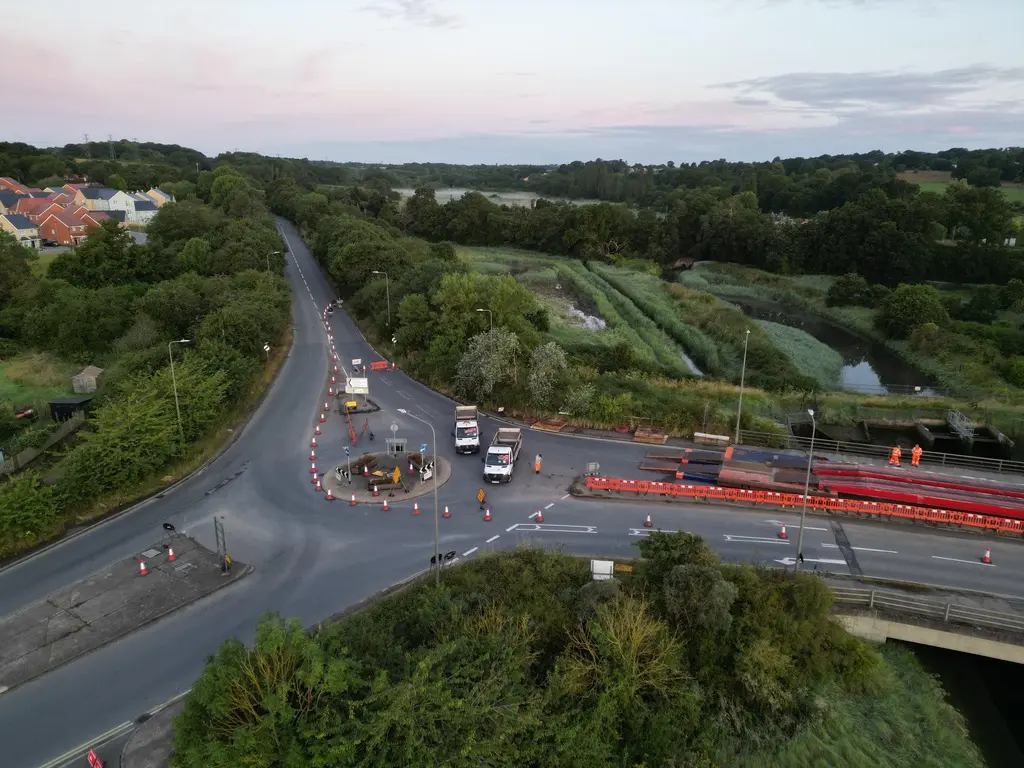How Sustainable Traffic Solutions Are Reducing Carbon Emissions
- Beaumont TM

- Aug 4, 2025
- 4 min read

As the UK pushes forward with its commitment to achieving net-zero emissions by 2050, industries across the board are being challenged to rethink the way they operate—and traffic management is no exception.
While it may not always be front of mind, traffic management has a powerful role to play in tackling carbon emissions. From reducing congestion and fuel consumption to supporting green infrastructure and deploying cleaner equipment, the sector is increasingly adopting sustainable practices to reduce its environmental impact.
At Beaumont Traffic Management, sustainability is more than a buzzword—it’s a responsibility. We’re proud to support carbon reduction through practical, meaningful initiatives that benefit our clients, our communities, and the planet.
Here’s how sustainable traffic management is actively contributing to lower carbon emissions:
1. Reducing Congestion Through Smarter Planning
Traffic congestion is one of the largest contributors to unnecessary fuel use and carbon emissions. Vehicles stuck in traffic or forced to take inefficient detours burn more fuel and generate more pollutants than those travelling on clear routes.
That’s where smart traffic management makes a difference.
By carefully designing road closures, diversions, and access routes that prioritise traffic flow, we help reduce stop-start driving and idle times. Our experienced planners consider peak travel times, local traffic patterns, and access requirements when building traffic plans—ensuring that disruption is kept to a minimum and journeys are as direct and efficient as possible.
This not only improves public satisfaction and safety but also supports lower vehicle emissions across the network.
2. Switching to Low-Emission Vehicles and Plant
Another significant contributor to emissions is the use of diesel-powered traffic management vehicles and equipment. Traditionally, fleet vehicles used for setup, breakdown, inspections, and standby roles have relied on fossil fuels—but that’s starting to change.
At Beaumont Traffic Management, we’re committed to modernising our fleet with more sustainable alternatives. That includes exploring the use of electric and hybrid vehicles where practical and regularly servicing our fleet to maintain optimum fuel efficiency.
In addition to cleaner vehicles, we’re also adopting energy-efficient, battery-powered equipment and solar lighting where suitable—helping to reduce reliance on generators and fuel-powered site lighting.
These changes may seem small on their own, but collectively they add up to significant reductions in carbon output.
3. Recycling and Sustainable Materials
Sustainability in traffic management doesn’t stop at the roadside. It also involves responsible resource use behind the scenes.
We’ve partnered with Bryson Recycling to divert used PPE away from landfill—recycling items such as gloves, high-vis gear, and safety helmets that would otherwise contribute to unnecessary waste. This initiative is part of our wider commitment to a circular economy, where materials are reused or repurposed rather than discarded.
We're also working to ensure our signage, cones, and barriers are sourced from suppliers that prioritise recycled or recyclable materials. By choosing durable products with longer life cycles and exploring alternatives to single-use plastic-based items, we’re reducing both environmental impact and operational waste.
4. Embracing Digital Solutions to Reduce Travel and Paper Use
Technology is proving to be a vital tool in sustainable traffic management. Gone are the days of printed traffic plans, hand-delivered documents, and multiple site visits for updates. Today, digital platforms allow us to share, review, and update documents in real time—reducing the need for travel and paper.
Remote site monitoring tools also allow our teams to oversee temporary traffic systems, signage, and pedestrian management without needing to be physically present. This lowers the number of trips required to and from site locations, cutting emissions from our vehicles and reducing our carbon footprint overall.
Additionally, digital communications with clients, local authorities, and contractors mean smoother collaboration with less environmental cost.
5. Supporting Environmentally Focused Infrastructure Projects
Many of the civil engineering and infrastructure projects we support are designed to help the UK become a greener, more sustainable place to live and work.
Whether it’s providing traffic management for cycle lanes, installing EV charging infrastructure, upgrading public transport systems, or enabling renewable energy projects—our role is to create safe, efficient environments where green infrastructure can be built without delay or risk.
Our commitment is not just to delivering projects safely and compliantly, but to doing so in a way that aligns with the long-term environmental goals of our clients and the communities we serve.
6. Educating and Empowering Our Team
Sustainability isn’t just about systems and tools—it’s also about people. That’s why we actively educate and engage our workforce around best practices for reducing emissions.
Whether it’s encouraging car sharing, reducing engine idling, or minimising waste on-site, we believe small actions taken by individuals make a big difference when adopted at scale. We also provide training and guidance on environmental compliance and carbon awareness as part of our broader commitment to continual improvement.
By building a culture of sustainability, we ensure that every member of the Beaumont Traffic Management team plays their part in reducing our carbon footprint.
Leading the Way Towards Greener Roads
Traffic management will always be a vital part of the UK’s infrastructure—but how we deliver it is evolving.
At Beaumont Traffic Management, we’re proud to be part of that evolution. Through investment in low-emission solutions, eco-conscious planning, and partnerships that support circular economy principles, we’re helping build a future where roadworks, events, and infrastructure improvements can take place with minimal environmental impact.
Sustainability isn’t an add-on—it’s integral to how we work. And as the industry continues to innovate, we’ll remain at the forefront of delivering smarter, cleaner, and greener traffic management solutions for our clients and communities.
To learn more about our Key Sustainability Focus Areas please visit our Sustainability page or contact us to discuss how we can keep your project on track with your sustainability goals































Comments